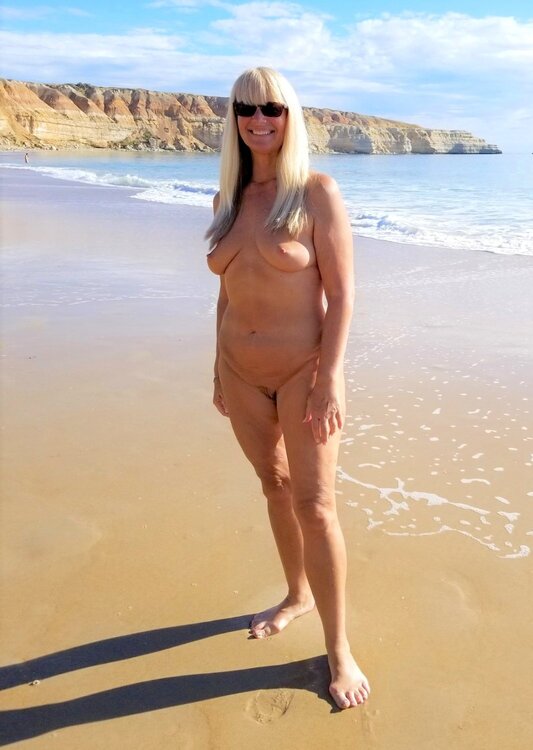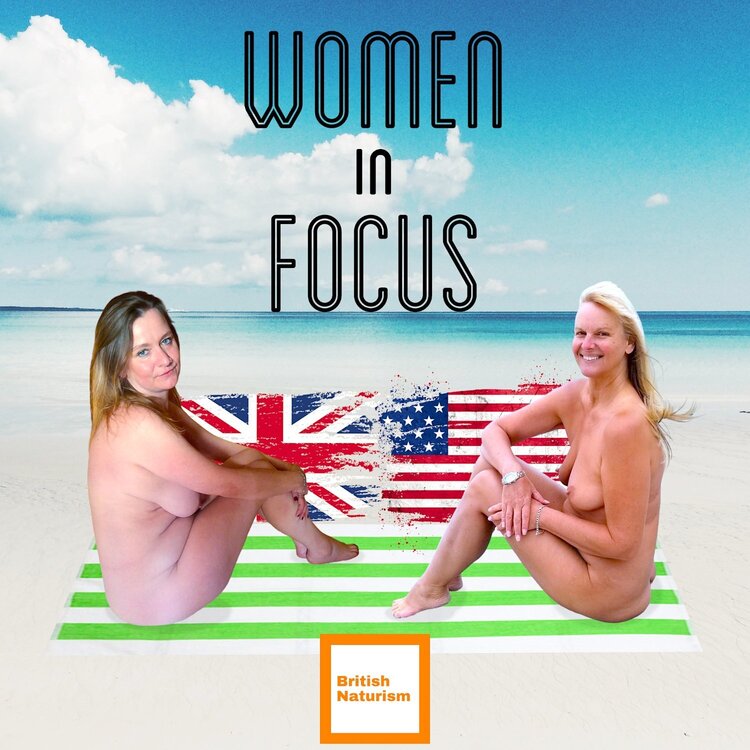A new series where Women in Naturism Campaign Co-ordinator, Helen Berriman meets other Naturist Women in our community. Welcoming Linda Weber, Nude Recreation – Coordinator for the Western Region of AANR.
Q: What got you interested in Naturism?
A: I became conscious that I did not feel comfortable in clothes in my early teens. I felt they hid my true self, and I realised people unfairly judged each other by their apparel. I started sleeping nude, and then it transitioned into coming home from school and removing my clothes. I was raised in a religious household, so this did not go over initially with my parents.
Q: Do you think there is a difference between the labels, naturism and nudism?
A: Being nude is labelled either “nudism”, specifically in the US, and “naturism” globally. I believe there is a difference, and that is not to say one is better than the other but rather more explanatory. To me, being a "nudist" is more a personal choice that indicates you enjoy being without clothes. On the other hand, the term "naturist" means you are more in line with not only being nude but have a connection to the Earth. Several years ago, I transitioned from a "home nudist" to a "social naturist," as I feel the term "naturist" is more in alignment with my life philosophy clothed as well as nude.
Q: How does Naturism impact your life on a day-to-day basis?
A: I am lucky enough to be retired, so I am nude in the house 24/7. It is great to step out of the shower and start my day without the constriction of clothing. Of course, when I need to run errands, I do dress, but for the most part, I can enjoy being nude more than I need to be dressed.
Q: What challenges do women face in naturism?
A: Before addressing women in naturism, we must acknowledge the societal and cultural morals that make up a significant portion of why it is difficult for women to embrace naturism. The media is full of articles and pictures of what women are "expected" to look like. The focus on being young and thin with no imperfections is unattainable, yet we hold women to this unreal standard. You have to "peel the onion" to remove the layers of shame, embarrassment, lack of body positivity, religious and societal expectations.
Q: How can we encourage more women to try it?
A: To encourage women to take a step toward naturism, we need to understand why they are reluctant and address them. Is it the shame of people seeing their imperfect bodies? Is it a cultural ideology that women must not be nude in front of anyone but their partner? Is it an ingrained religious upbringing that erroneously tells us being naked is a sin? We must first address their concerns and then work toward the goal of naturism.
Q: How can more women help in desexualizing nudity?
A: It is easy to say that by showing wholesome, non-sexual nudity, we can break the instant bond people have in their minds that nudity equals sex. Unfortunately, our biology is hardwired for men to size up a woman by her attractiveness as well as her ability to procreate. Men are visual and are interested in what a woman looks like. Educating people that a woman's nude body does not automatically equal sex is a problematic ideology, given that social media and the internet thrive on the availability of porn. However difficult though, we must continue to educate people on what wholesome, non-sexual naturism looks like.
Q: How can we encourage body positivity and acceptance?
A: We need to get the message out that the "new normal" is not perfection but instead accept that we are unique. Our bodies tell the story of who we are. Some of us are cancer survivors with scars, or we have fat from bearing children, or age spots from getting old, or lumps, bumps, and cellulite from merely living life. When we stop treating these as imperfections and something to be ashamed of but rather celebrate these as a part of living life, women will be able to break the destructive link of hating their bodies.
Q: What advice would you offer to women curious about naturism?
A: There is no stock answer to fit every situation. The key is to listen to their story. If someone approaches me and asks me about being a naturist, I ask the person to tell me about their life and what makes them interested in naturism, but not quite ready to take the next step. It is what they tell me that drives my answer. A fundamental part of talking with women is respecting whatever decision they make. I ask them to try just a tiny step like sleeping nude or doing housework in the nude and then tell me how it made them feel. When women are allowed to take the steps at their pace, they feel in control and are often open to trying more steps to becoming a naturist.
Q: What drives your passion in promoting naturism?
A: When I read a good book or eat at a restaurant with great food, I like to share this experience with my friends to enjoy too. Being a naturist is no different. When I was younger, it helped me understand the changes my teen body was going through and not experience shame. Instead, I was experiencing "body positivity" before it had a name. As an adult, I realised how many people could benefit from the naturist philosophy that I wanted to share. So, I made the big step of going onto social media to help educate people on this great way of life. Being an introvert, this was a big decision since I was not on any form of social media beforehand, but I felt so strongly that this was the right thing to do. I wanted to show women that "If I can do it, so can you."
Q: Any other thoughts?
A: As the WINR – Women in Nude Recreation – Coordinator for the Western Region of AANR – American Association for Nude Recreation – I am continuously thinking of ways to introduce women to naturism. I am proud of what I have been able to accomplish both in the US and abroad. I work with Lana Bothma in South Africa on a bi-monthly online call to introduce the women there to wholesome naturism and do the same for the women in the US. I designed handouts for non-naturist trade shows and events to show that naturism is not to be feared but accepted. I hold get-togethers for women to experience the camaraderie that comes with being in naturism. I created the hashtag #IAmtheFaceofNaturism so naturists could show non-naturists that we are your neighbour next-door, your coworkers who work alongside you who enjoy the same things they do, but with wholesome naturism.
![]() Linda was featured on the first episode of the Women in Focus podcast. You can listen to her episode here.
Linda was featured on the first episode of the Women in Focus podcast. You can listen to her episode here.





